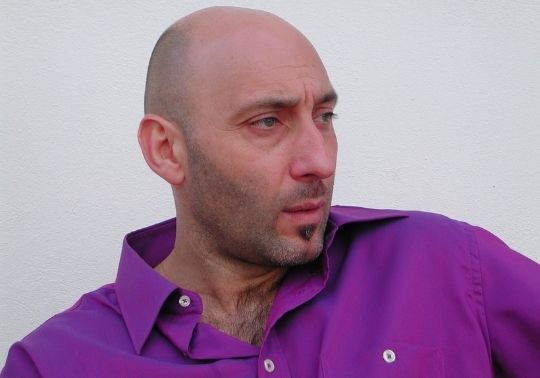Ricard Silvestre, co-supervisor of a doctoral thesis awarded by the María José Jove Foundation
- Tarongers Institutes Support Unit
- December 2nd, 2020

Professor Ricard Silvestre, a member of the Institute of Educational Creativity and Innovation of the Universitat de València, has co-supervised Rebeca's Zurru doctoral thesis. It has won the Research and Trial on Therapeutic Applications of Art 2020 Second Award of the María José Jove Foundation, which is worth 6,000 euros and the publication of the work.
Rebeca Zurru's thesis is called "Having another look at forgetfulness. Creative Strategies from art and education for stroke neurorehabilitation and maximum functionality of the individual in their environment". Along with Ricardo Silvestre, it has been co-supervised by Joël Mestre and Roberto Llorens, professor at the Universitat Politècnica de València. The Research and Trial on Therapeutic Applications of Art Award aims to promote the contemporary thought and its interdisciplinary confluence in order to contribute to the study, spreading and praxis of art as a therapeutic tool.
The winning entry is a trial which, according to the jury, gives visibility to a solid quantitative study on creative practice in the clinical context of Acquired Brain Injury rehabilitation. The work shows how artistic practice in neurorehabilitation processes can be a useful resource for establishing new strategies for transformation and improvement of cognitive and executive skills, which favour the links between the individual and their environment. Specifically, the proposed study argues to what extent the implementation of creative practice in the clinical context of Acquired Brain Injury rehabilitation can provide benefits to the functionality of individuals who have suffered from these diseases. To this end, it is used clinical assessment scales: Barthel Index (IB), Rosenberg Self-Esteem Scale (RSS), EuroQol-5D (EQ5D), Social Skills Scale (SSS), Hospital Anxiety and Depression Scale (HAD) and Frontal Systems Behaviour Scale (FrSBe). The work also includes practical exercises: drawings and paintings, together with twenty-three first-hand letters which recount how the stroke that the author's mother had felt.
Rebeca Zurru Fernández was born in Valencia in 1989. As an independent researcher, her line of study tries to establish and make visible the existing connections between creative resources and therapeutic processes focused on acquired brain injury rehabilitation, and other educational or health contexts with adaptation and social inclusion requirements. In 2014 she graduated in Fine Arts at the Universitat Politècnica de València and she then studied the Master's Degree in Secondary and Higher Secondary Education Training at the University of Valencia. In 2016, she began his research work through the intervention of Creative Strategies for Neurorehabilitation in the clinical context of hospital units and services aimed at the care of Acquired Brain Injury. In 2020, she obtained her PhD in Art: Production and Research at the Universitat Politècnica de València's Doctoral School, which was awarded Cum Laude mention.
The panel was made up of Felipa Jove, president of the María José Jove Foundation; Marián López Fernández Cao, professor of Artistic Education at the Complutense University of Madrid, promoter of the Official Inter-university Master's Degree in Art Therapy and Artistic Education for Social Inclusion and vice-president of the European Consortium for Arts Therapies Education (ECARTE); Margaret Hills de Zárate, doctor and full professor of Art Psychotherapy at Queen Margaret University of Edinburgh, in Occupational Therapy and Arts Therapy's subject area; Néstor Braunstein, honorary doctor at the Universidad Veracruzana of Mexico, doctor, psychiatrist, psychoanalyst and essayist; and of Susana González, director of the María José Jove Foundation's Art Collection, cultural manager and curator.
More information:
File in: Recerca, innovació i transferència













